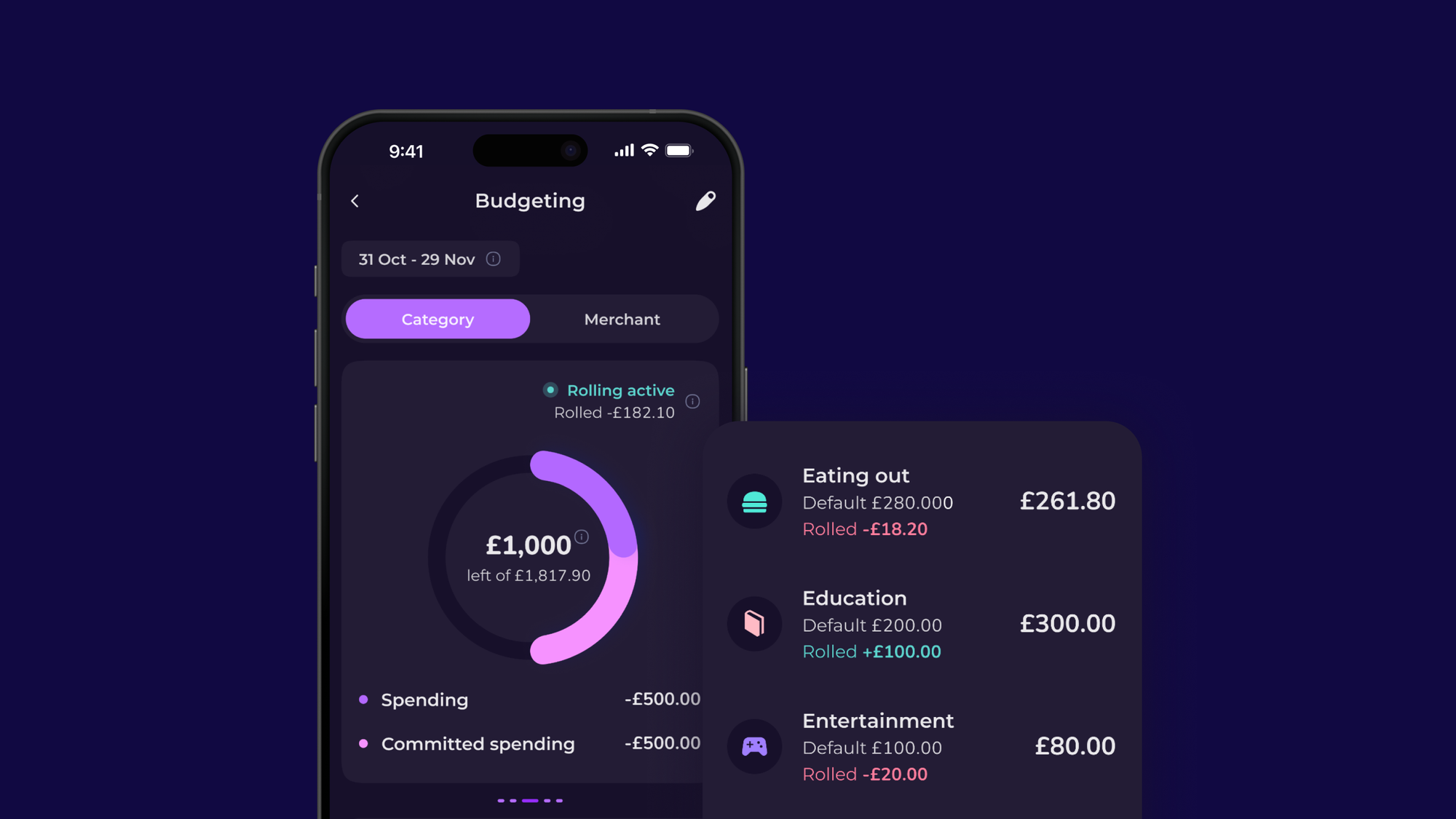FEATURED ARTICLE
Which Savings Account Should I Choose: A Guide For The UK

Edouard Daunizeau
February 25, 2020 •4 min read
TABLE OF CONTENTS
What Is A Savings Account?
Shop Around And Don’t Be Afraid To Reinvest
Try To Meet The Minimum Deposit Amount
Consider The Number Of Account Withdrawals You Can Make
Understand The Associated Risk Levels With Some Savings Accounts
Ensure Your Investments Won’t Affect Your Taxable Income
Conclusion
Choosing the correct savings account is essential for reaching your money-saving goals.
The right savings account could be the difference between reaching or missing money-saving time constraints, having the capital for unique or one-off investment opportunities, and avoiding spending more time at work slaving away to put away some hard-earned cash.
The problem is there are so many savings accounts out there on the market today that it can be extremely confusing as to which one is the right account for you.
Never fear, we have your back.
Read on as we describe exactly what a savings account is and which one is right for you.
What Is A Savings Account?
A savings account is an account where you deposit your money with the intention of seeing a return in the form of interest. A savings account is not like an everyday account. The intention with a savings account is to put money away and not touch it until a later date.
This is often facilitated by savings accounts restricting your access to your invested money.
Savings accounts often have a higher fixed interest rate associated with the account, thereby, maximizing the amount of interest you will receive on your investment.
These fixed savings accounts often have better interest rates than easy access accounts or everyday accounts. Easy access or everyday accounts often have low interest or variable return rates.
Pretty straight forward, right?
Of course.
Now we have that outta the way…
…Let’s take a look at how you can choose the best savings account that will best meet your financial needs.
Shop Around And Don’t Be Afraid To Reinvest
Your choice of savings account depends on your current financial situation and your saving aspirations.
Whichever account you decide to choose, don’t despair if you feel like you have made a mistake and not chosen wisely. As it is normally fairly easy to get access to your money and move it to a better option.
We actually recommend it.
You should continually look at moving your investments around no matter how well you feel you have chosen as most banks will drop their interest rates on your savings account after the first year of investing with them.
Therefore, it is worth shopping around regularly.
They call this initial higher interest rates introductory interest rates. A good way to ensure you are making the most of introductory interest rates is to set yourself some form of reminder for when the introductory interest rates end.
Even if there is no end date, set yourself a reminder as it is a good opportunity to reassess how your money is doing and whether you should switch to a different account.
Try To Meet The Minimum Deposit Amount
Depending on who you decide to bank with and which account you choose, the minimum deposit amount can be upwards of £1,000.
It’s important you understand that meeting this amount will ensure you are acquiring the highest interest saving rates possible as soon as you are able to.
Be sure to check a prospective account’s basic requirements to make sure you are securing these high rates.
Consider The Number Of Account Withdrawals You Can Make
Some savings accounts limit the number of withdrawals you can make during a set period of time. This is great if you are known to cheat your savings goals and slowly chew away at your investments, however, it isn’t so good if you genuinely have a reason for accessing your money.
Therefore, it is important to understand exactly how often you can make withdrawals and how much these withdrawals can amount to.
If you exceed this limit for any reason, you will likely incur a fee or possibly lose the high-interest rates you were expecting to receive over the time you had your money invested in the chosen account.
Understand The Associated Risk Levels With Some Savings Accounts
Before you go investing your money in an Individual Savings Account (ISA) it is important to understand that there are varying levels of risk associated with these accounts.
Some ISAs, such as those that invest in fixed-rate bonds, are virtually risk-free.
However, ISAs that invest in stocks or shares, as an example, have a higher level of risk associated with them. This is due to the nature of the investment, stock and share markets fluctuate, therefore, there are inherent risks associated with this type of investing.
You must understand that, in some cases, you may even lose money, or more likely, you will have to wait a longer period to see a return on your investment.
However, with a higher risk, you can experience big rewards.
These high-risk investments sometimes pay off and the return you’ll receive may be quite substantial. It’s really up to you as to how much risk you are prepared to take on.
Ensure Your Investments Won’t Affect Your Taxable Income
It is important to understand that your investment returns may affect the amount of tax you may have to pay. For example, if you fall under the UK’s basic tax rate of 20% then you have a PSA (personal saving allowance) of £1,000 annually before the taxman will put his hand out.
It is also important to note, in the UK, you have an ISA allowance of up to £20,000. Meaning you can invest up to £20,000 in an ISA and not pay any tax whatsoever on the interest you could potentially earn on this money.
Conclusion
It’s a tricky business choosing the right savings account that will suit you.
There is so much to consider.
Potential investment returns, varying interest rates, possible taxes, and withdrawal limits. It can all get super confusing really quickly.
Do you know what is also confusing though?
Choosing the right money management app.
Emma is an easy to use, no fuss money management app that will suit everybody no matter their current financial position.
Emma will help you keep track of your money (including savings accounts), find any areas in your budget you can tighten, help you avoid unwanted banking fees, identify any unneeded subscriptions, and track any debts you may have.
You can download Emma from either the App Store and Google Play Store.
You may also like
Check out these related blog posts for more tips
© 2025 Emma Technologies Ltd. All Rights Reserved.
Emma is registered and incorporated in England and Wales.
Emma Technologies Ltd is an appointed representative of RiskSave Technologies Ltd, which is authorised and regulated by the Financial Conduct Authority (FRN 775330).
Payment services (Non MIFID or Deposit related products) for Emma Technologies Ltd are provided by The Currency Cloud Limited. Registered in England No. 06323311. Registered Office: Stewardship Building 1st Floor, 12 Steward Street London E1 6FQ. The Currency Cloud Limited is authorised by the Financial Conduct Authority under the Electronic Money Regulations 2011 for the issuing of electronic money (FRN: 900199). For more detail on how your money is protected please see here. You can also find Currency Cloud's Terms of Use here.
Emma Technologies is an Introducer Appointed Representative of Quint Group Limited and not a lender. Quint Group Limited is authorised and regulated by the Financial Conduct Authority (Firm Reference Number 669450). Monevo Limited is an Appointed Representative of TransUnion International UK Limited. TransUnion is authorised and regulated by the Financial Conduct Authority (Firm Reference Number 737740). Emma Technologies introduces customers first to Quint Group Limited, as a licensed credit broker, who then refers on to Monevo Limited.
Emma is registered with the Financial Conduct Authority under the Payment Services Regulations 2017 for the provision of payment services.
Financial Conduct Authority Reg Nr: 794952.
Company Registration Number: 10578464.
Data Protection Registration Number: ZA241546.
All testimonials, reviews, opinions or case studies presented on our website may not be indicative of all customers. Results may vary and customers agree to proceed at their own risk.
Resources: Cancel subscriptions, Cashback offers, Who charged me, Rent Reporting, Budgeting, Investment universe, Emma vs Moneyhub.
Featured cashback offers: Samsung, SimplyCook, NordVPN, Audible, M&S Homeware.









